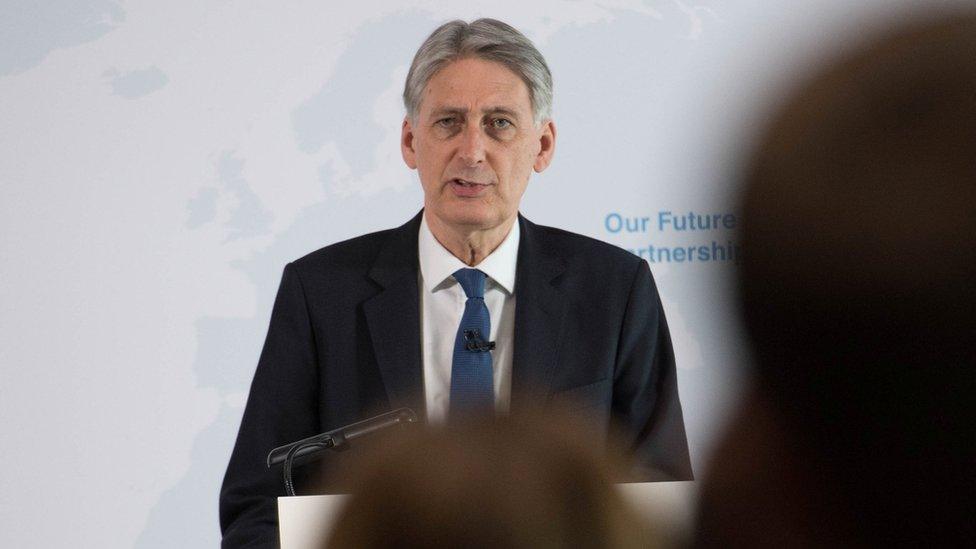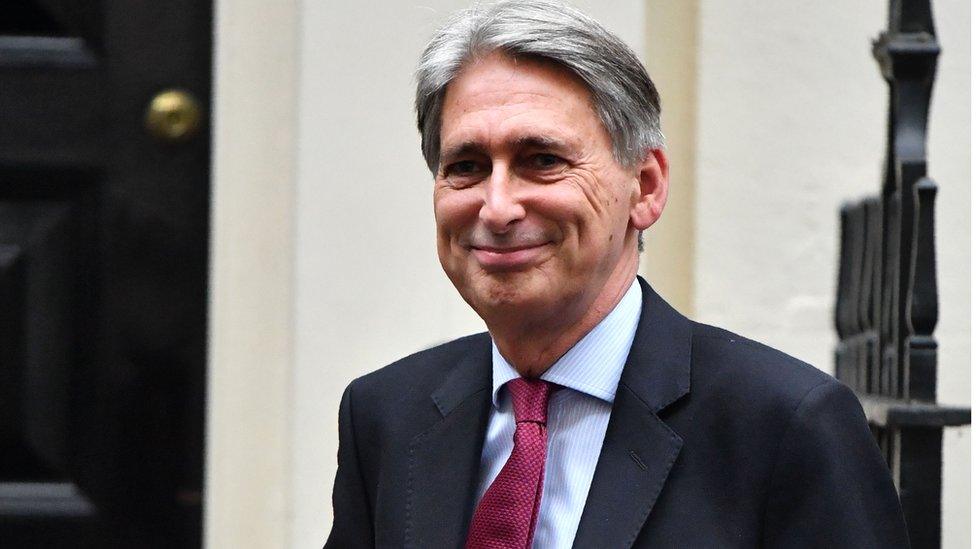Hammond ends 'negotiating with ourselves'
- Published
- comments

The chancellor said the UK and EU had a "mutual interest" in a trade deal on financial services
Philip Hammond's speech was broadly welcomed by the UK financial services industry.
But City sources tell me there was nothing in this speech that would make banks and insurance companies halt, or even pause, their post-Brexit contingency plans.
As one City insider told me: "So far, we have been negotiating with ourselves.
"All the chancellor and the PM have done in the last week is to flesh out the position of one of the parties - that's pretty limited progress."
Having said that, the EU's perennial complaint has been that it doesn't know what the UK wants. The prime minister and the chancellor have gone a substantial way to answering that question in the last week.
Hammond's vision
The chancellor has set out a vision of what he hopes and thinks is necessary, possible and desirable to achieve when it comes to the all-important financial services sector, which is the UK's biggest single export, makes up a tenth of our economy and pays nearly 12% of all taxes.
According to this vision:
It is necessary that the UK cannot take its financial rules from the EU, as ultimately, UK taxpayers are at risk from the presence of an oversize financial sector in the UK - as they found out painfully in the great crisis.
It is possible to include financial services in a free-trade agreement, because the EU tried to include them in a deal it nearly did with the US.
It is desirable because the UK and, in particular, London provides crucial skills and services for the whole EU which could not be replicated without enormous additional cost to EU businesses and individuals. Also, London's loss will not be Europe's gain. Business will relocate to New York, Singapore and Hong Kong, leaving the EU less competitive.
The chancellor laid out a way to achieve a better outcome through a form of mutual recognition of financial rules, with a neutral third-party body to keep both sides honest.
Crucial moment
Currently, the only offer on the table from the EU is a unilaterally granted "equivalence" that only covers 30% of current financial activity and can be removed at very short notice. The big US, Japanese and Swiss banks based here have all told me that is not good enough to stop them relocating people, functions and business.
For the City, neither the PM nor the chancellor's speech was the crucial date in March - the markets didn't react to the chancellor's speech at all.
The crucial moment comes at the end of the month, when the European Council meets. The hope is that that meeting will produce an outline agreement on a transition deal which will see current rules and regulations stay as they are until at least December 2020.
If that doesn't happen, listen for the audible sound of contingency plans clicking into a higher gear.
- Published7 March 2018
